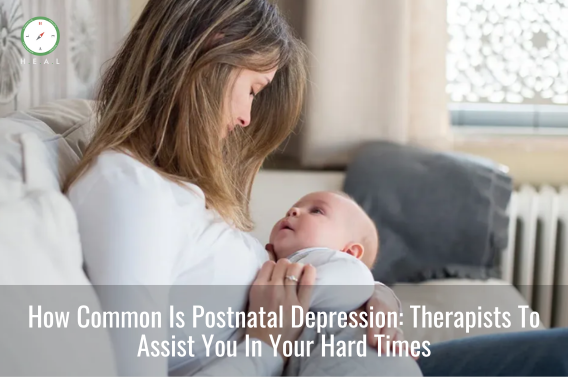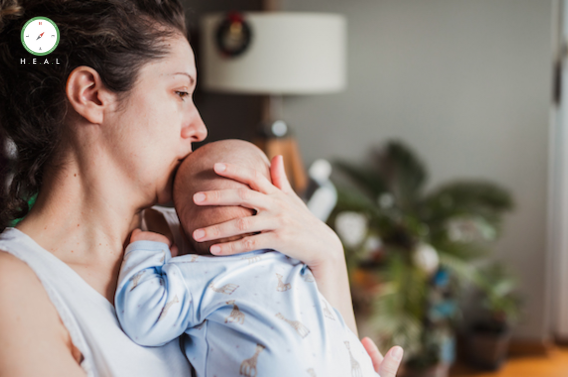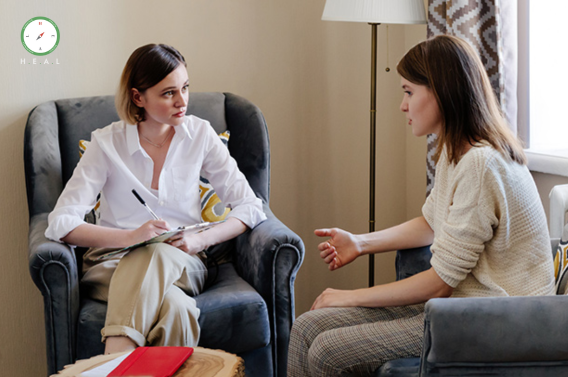Postnatal depression, also known as postpartum depression, can affect new parents, mostly mothers within weeks or months after having a baby. 10-20% of new moms are affected by this mental issue. Not only mothers but new fathers can also suffer from this kind of mental illness. Its impact varies from one person to another. Mild to severe symptoms may occur. Feelings of worry, sadness, frustration, guilt, despair, and feeling of no value may surface in the mind with this condition. Challenges like lack of sleep, appetite loss, and difficulty in connecting with the baby may also present.

After having a baby, some people face a serious issue called Postnatal depression. It's not just birthing mothers who can get it, but also surrogates and adoptive parents who can go through such a mental condition. Having a baby changes our daily life and routine. Some physical changes can also be seen as hormones are different, and bodies change. Emotional flips, financial tightenings, and social life shifting can be seen with bare eyes. All these could lead to Post-natal depression. It's not just regular "baby blues." It's heavy. It makes new parents feel up and down, cry often, get easily agitated, tired all the time, guilty, worried, and even uncaring towards the baby or themselves. This depression can be mild one day and severe the next, it can be visible within a week after childbirth or a year later. It could last for a while, but there's good news. Treatment like Postnatal depression counselling or using prescribed medicine works positively. Most women with Postnatal depression improve with the right treatment.
Unveiling the Roots:
Identifying Triggers: Therapists engage in finding the potential causes of Postnatal depression. During sessions, they involve exploring hormonal changes, sleep deprivation, and a history of depression/anxiety of the patient, before or after the emotional toll of childbirth.
Cognitive Behavioral Therapy (CBT):
A cornerstone of Postnatal depression therapy, CBT, therapists identify negative thought patterns that instigate depression and anxiety. CBT makes patients learn to challenge these distorted perceptions and replace them with ones that are more true and give them strength.
Equipping You with Tools:
Building Your Support Network: A strong support system of friends, family, or various supportive groups sometimes helps patients recover fast. Therapists can help you find and build such groups. When a patient feels connected to others, mental isolation, a significant symptom of Postnatal depression starts dissolving automatically.
Stress Management Techniques:
A therapy session is not only about reaching the patient verbally, but to equip them with some practical tools like relaxation techniques which can be done with deep breathing exercises, and mindfulness practices. All these lead to a healthy discussion about managing stress and crossing the mental hurdles.

Unresolved Past Experiences:
Past traumas of miscarriages or any previous bouts of depression can be a serious reason for Postnatal depression. During the session, therapists provide a secure place to open up about these traumatic issues and develop healthy adjusting mechanisms.
Relationship Challenges:
In the postpartum period both the new father and mother often face many ups and downs in their relationship. Therapists with discussions can guide couples in strengthening their conjugal relationship and building a more supportive partnership.
Individual Therapy: Individual therapy is the most popular tool for Postnatal depression counselling. A patient can get the chance of one-to-one sessions with the therapist and can express her heart out and explore the roots of Postnatal depression. Therapists often rely on open conversation and techniques like CBT that help to understand your pessimistic thought patterns. It can develop coping mechanisms to manage stress and anxiety. Through this personalized approach, a patient can regain control over the mind and accept the challenges of motherhood with renewed strength.
Couples Therapy:
Couples therapy provides a secure place for both the partner to overcome communication challenges that new parents often face due to Postnatal depression. The therapist acts as a facilitator or communicator here, who can guide and help in developing healthier communication patterns. This can strengthen your support system as a couple by knowing the weaknesses, allowing to accept the demands of parenthood and Postnatal depression together with greater understanding and empathy.
Group Therapy:

Postnatal depression group therapy creates strong bonds and shared understanding. Meeting other mothers with similar struggles can help lessen the feelings of being alone. The therapist leads the group talks, letting you give and receive help, and learn ways to deal with the struggles shared in the group. The feeling of togetherness and shared knowledge can make you feel stronger on your journey to feeling better.
Remember, Postnatal depression counselling is a two-way street. Actively participate in sessions, be open to trying new strategies, and voice your concerns. Finding the right fit might take time, but with dedication and professional support, you can find relief from Post-natal depression and reclaim your emotional well-being.
Vidhi Beri, a renowned health transformation coach, Global Educator and Specialist in the field of Holistic Health from Kolkata is working in this field successfully. As a health transformation coach, she involves guiding and supporting individuals in making positive changes to improve their overall health and well-being. She aims to help clients achieve their health goals and create sustainable lifestyle changes. To know her work better, please visit the official website https://www.vidhiberi.com/